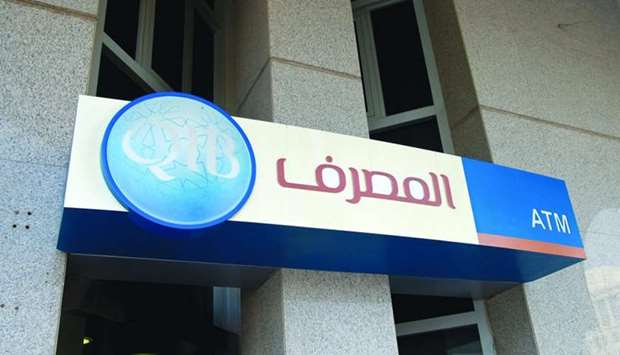Qatar should prioritise Islamic banking, which warrant its own regulatory framework under the central bank purview, and the country could consider adopting Malaysia's value-based intermediation (VBI), where Shariah-principled financial institutions tailor products and services, while ensuring sustainable environment and bottom-line, said a Qatar Financial Center (QFC) report.
"A key step to enhance the growth prospects of Qatar’s Islamic banking sector would be to make it a strategic government priority, supported by dedicated initiatives and incentives exclusively targeting Islamic banks. Such incentives may include relaxed banking provisions, as has been implemented in Turkey," QFC said in its report, prepared in association with Refinitiv.
Qatar’s Islamic banking sector stands to gain a competitive advantage in the region and attract more global business through the adoption of a more progressive approach centred on sustainability, it said.
By identifying Islamic finance with sustainable practices, Islamic finance in Qatar would evolve from offering conventional products that are made ‘Shariah-compliant’ to introducing ‘Shariah-based’ products that offer added benefits – becoming more aligned with the principles of Shariah.
In October 2019, ESG (environment social governance) reporting for listed companies on the Qatar Stock Exchange (QSE) became mandatory following its voluntary introduction in 2016.
Highlighting that Qatar’s four Islamic banks are all subject to these requirements, it said however, more considerable efforts are required to get Shariah-compliant lenders and financial institutions to rethink their business models to ensure the sustainability of their offerings as well as their bottom lines.
"The VBI financing and investment framework introduced by Bank Negara Malaysia in 2018; is a model that can be extended to Qatar and would be the first in the region," QFC said.
Referring to the emergence of newer Shariah-based ESG funds in Malaysia as the country moves to the adoption of sustainable investment frameworks under the VBI initiative; it said Qatar can capitalise on this trend, backed by a sustainable and responsible investment framework, which would create a unique selling point attracting further demand from conventional investors with ESG mandates. Establishing specialised Islamic banks, focused on areas such as energy, sustainable investment and venture capital, would attract more international business to Qatar, the report said.
In addition, as standalone Islamic digital banks emerge in the region, Qatar’s existing Islamic banks can gain competitive advantage locally by collaborating with fintech players to establish their own digital banks, aligning their brands and offerings with the evolving needs of their clientele.
The QFC Regulatory Authority (QFCRA) enforces dedicated Islamic banking regulations – the Islamic Banking Business Prudential Rules (IBANK) – while those outside QFC are governed by an overarching Qatar Central Bank (QCB) Law supplemented by specific guidance for Islamic banks.
"As the largest sector within Islamic finance, Islamic banking warrants its own regulatory framework under the QCB’s purview," the report said.
This would provide assurances to investors and new Islamic banks that all such institutions are held to the same governance and Shariah standards in all aspects from operations to risk management, it said, adding "this could be further enhanced by enforcing mandatory compliance with the AAOIFI (Accounting and Auditing Organisation for Islamic Financial Institutions) standards and the establishment of a centralised Shariah council."
Qatar’s Islamic banking sector stands to gain a competitive advantage in the region and attract more global business through the adoption of a more progressive approach centred on sustainability, it said.
By identifying Islamic finance with sustainable practices, Islamic finance in Qatar would evolve from offering conventional products that are made ‘Shariah-compliant’ to introducing ‘Shariah-based’ products that offer added benefits – becoming more aligned with the principles of Shariah.
In October 2019, ESG (environment social governance) reporting for listed companies on the Qatar Stock Exchange (QSE) became mandatory following its voluntary introduction in 2016.
Highlighting that Qatar’s four Islamic banks are all subject to these requirements, it said however, more considerable efforts are required to get Shariah-compliant lenders and financial institutions to rethink their business models to ensure the sustainability of their offerings as well as their bottom lines.
"The VBI financing and investment framework introduced by Bank Negara Malaysia in 2018; is a model that can be extended to Qatar and would be the first in the region," QFC said.
Referring to the emergence of newer Shariah-based ESG funds in Malaysia as the country moves to the adoption of sustainable investment frameworks under the VBI initiative; it said Qatar can capitalise on this trend, backed by a sustainable and responsible investment framework, which would create a unique selling point attracting further demand from conventional investors with ESG mandates. Establishing specialised Islamic banks, focused on areas such as energy, sustainable investment and venture capital, would attract more international business to Qatar, the report said.
In addition, as standalone Islamic digital banks emerge in the region, Qatar’s existing Islamic banks can gain competitive advantage locally by collaborating with fintech players to establish their own digital banks, aligning their brands and offerings with the evolving needs of their clientele.
The QFC Regulatory Authority (QFCRA) enforces dedicated Islamic banking regulations – the Islamic Banking Business Prudential Rules (IBANK) – while those outside QFC are governed by an overarching Qatar Central Bank (QCB) Law supplemented by specific guidance for Islamic banks.
"As the largest sector within Islamic finance, Islamic banking warrants its own regulatory framework under the QCB’s purview," the report said.
This would provide assurances to investors and new Islamic banks that all such institutions are held to the same governance and Shariah standards in all aspects from operations to risk management, it said, adding "this could be further enhanced by enforcing mandatory compliance with the AAOIFI (Accounting and Auditing Organisation for Islamic Financial Institutions) standards and the establishment of a centralised Shariah council."


